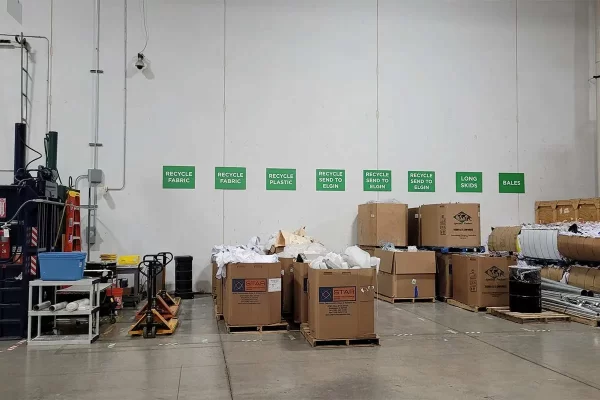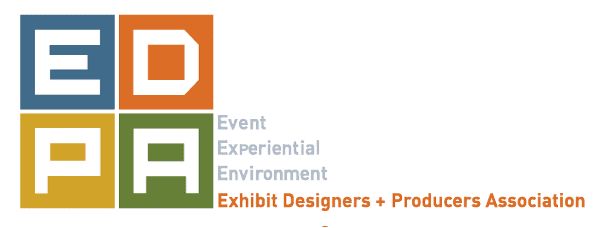In an industry where most businesses are owned and operated by men, it is easy to overlook woman-owned companies. Most professionals, when searching for an exhibit designer or furniture provider, don’t even think about the difference between doing business with a woman-owned company versus a predominately male one.
For those woman-owned businesses, however, the concept of supporting other predominately female companies is a factor that plays into every decision.

“I focus on buying from other Women Business Enterprise (WBE) members to support each other as a first option,” said DJ Heckes, owner of Exhib-it!, a New Mexico-based tradeshow marketing company. “Then I go through the National Association of Women Business Owners (NAWBO) secondly.”
For a company to be registered as woman-owned, it must meet the credentials set by an organization like WBE or NAWBO. The certification process defines a list of criteria the business must meet, such as being at least 51 percent woman-owned and completely operated by a woman. Some organizations, like the Women Business Enterprise National Council (WBENC), assign a case worker to visit the company and verify the credentials.
But jumping through the hoops of a certification process is worth the hassle.
“I have worked with many WBE members, and it has improved my overall business,” said Heckes. “The WBE Membership Program provides government-owned agencies a tool to help meet their Woman-Owned Small Business (WOSB) contracting goal of five percent. Additionally, restricting competition to qualified WOSBs increases our success.”
Becoming a certified woman-owned business also helps boost most companies’ clientele.
“It is valuable,” said Freddie Georges, owner of Freddie Georges Production Group (FG|PG). “It’s contributed to business growth via access to Fortune 500 companies who may otherwise not consider doing business with FG|PG.”
Although it is important for women to support other women, it’s also becoming vital for others to work with predominately female organizations. In a recent article from TIME Magazine, Belinda Luscombe touted the “She-conomy” –
“In the U.S., women hold sway over 51.3 percent of the nation’s private wealth,” she wrote. “In 2007, women were $90 billion worth of the $200 billion consumer-electronics business. They’re $105 billion of the $256 billion home-improvement market. They’re 44 percent of NFL fans.”

Luscombe goes on to say that there are few industries that do not recognize the female dollar, and therefore, female buying power, which women have a lot of.
According to a study from the Boston Consulting Group, women control $12 trillion in the overall $18.4 trillion in global spending.
With all of this power and spending money in the hands of women, it seems like a foolish thing to ignore woman-owned businesses in the tradeshow industry.
“Most of our customers are initially skeptical about whether or not we are really woman-owned and operated,” said Amanda Helgemoe, owner of Nuvista, a Texas-based tradeshow services provider. “Once they give us an opportunity, it becomes clear to them and they are very respectful of what we are trying to accomplish in this industry.”
Working with a woman-owned business is not only a great idea because of the buying power, but it helps promote gender equality in the workplace. Walmart’s recent strategy to aim new programs and more spending toward women-owned businesses and female workers is helping women all over the world improve their standing and become equal with men in the economy.
“Walmart’s global women’s initiative has the potential to be a game-changer for women and for economic growth,” said Melanne Verveer, U.S. Ambassador at Large for Global Women’s Issues. “By tapping its core competencies as a global retailer, Walmart will empower more women to access markets and develop careers in the global supply chain, transforming their lives and the lives of their families.”
With the idea of promoting woman-owned businesses becoming more mainstream, it is only a matter of time before the tradeshow industry follows suit.
“Working in a male-dominated career field can be challenging,” said Heckes. “What I feel has been the biggest benefit, as well as a competitive advantage, is my attitude toward having an open mind. Women have the ability to be strategic and tactical when needed for adopting change in their environment.”





























